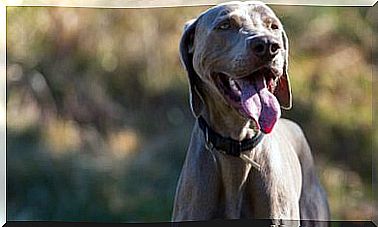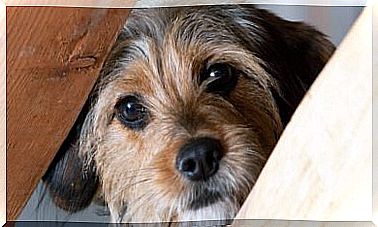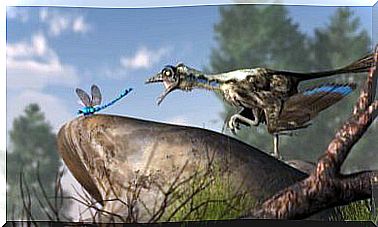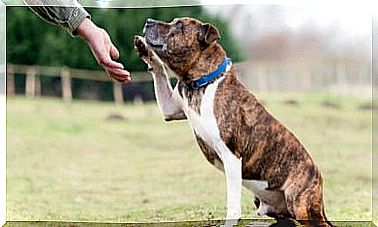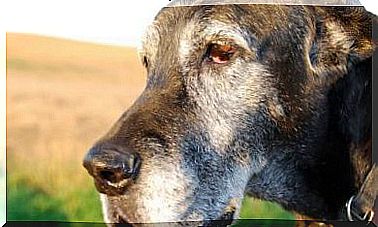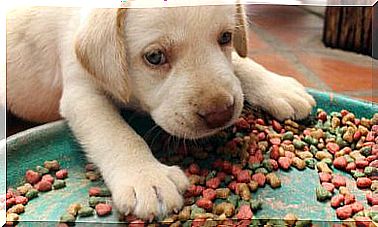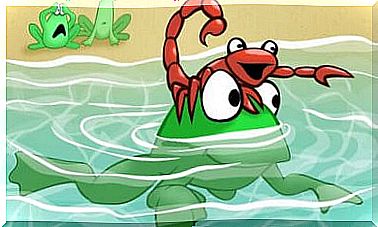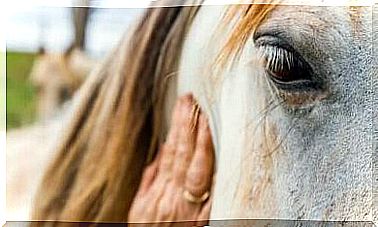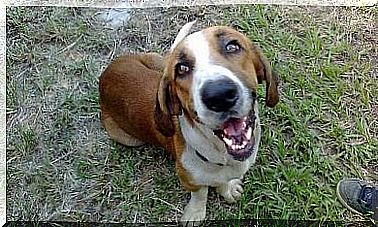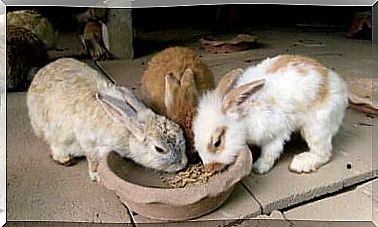What Is Diet-related Aggression In Dogs?
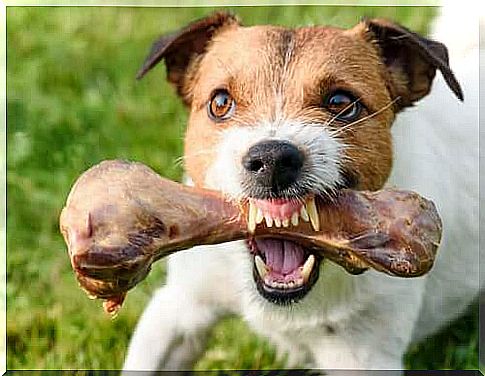
When dogs get aggressive to defend their food, it can become a serious problem. In this situation, there is a risk that other dogs or people will be bitten. In addition, diet-related aggression in dogs can intensify over time. This can lead to your dog becoming very possessive in the end.
It is perfectly normal for dogs to be protective of their property. Wild animals that protect their valuable resources such as food, partners and their territory have better chances of survival in nature.
Therefore, today we want to tell you how you can determine diet-related aggression in your dog and what you can do about it.
How can you identify diet-related aggression in dogs?
Diet-induced aggression is a behavior that dogs use to protect their resources. They manifest themselves, for example, in the fact that some dogs become defensive while eating and show threatening gestures to keep outsiders at a distance.
This behavior can be directed against other animals and / or people. If a dog growls slightly or bares its teeth, it is considered mild or mild aggression. Moderate dietary aggression is where dogs use their bodies to keep others away from their food. However, there are also serious cases when dogs bite anyone they consider to be a threat.
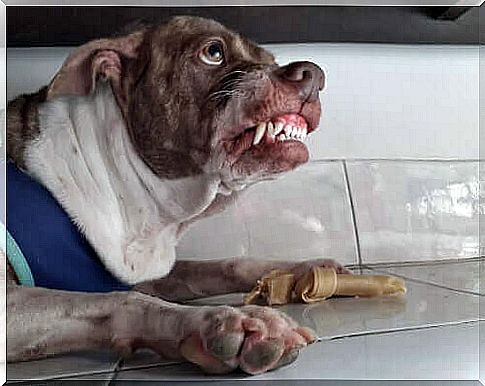
Diet-Related Aggression: What Causes It?
In fact, while it seems reasonable to assume that diet-induced aggression is a dog dominance behavior, this is not always the case. Because the main cause is the competition for food with other family members.
Often times there will be one or two puppies in a litter who will dominate the food bowl and employ aggressive behavior to achieve this. Any puppy younger than 16 weeks of age who shows protective behavior around food should be evaluated by a veterinarian. Because this is an early warning sign of the development of aggressive behavior.
There are a variety of things that are important to dogs
Although many dogs merely hoard food, there are some dogs that are very possessive of bones and toys. Others are hoarding items they “stole” such as bags of dry food from the trash, socks, etc.
In some cases, dogs will only display this possessive behavior in the presence of certain people – usually strangers. However, there are also dogs that defend and protect their property from every human being.
How do you know if your dog’s aggression is related to diet?
First of all, watch your dog’s body language as they eat. You may notice that the animal’s body is stiffening and its head is very close to the food bowl.
Additionally, you might be able to see the whites of your dog’s eyes. Perhaps his ears are down, his tail is hanging down, and his fur is up. Either you see all of these signs or just some of them. As we mentioned earlier, it could also growl, nudge, or, in the worst case, bite.
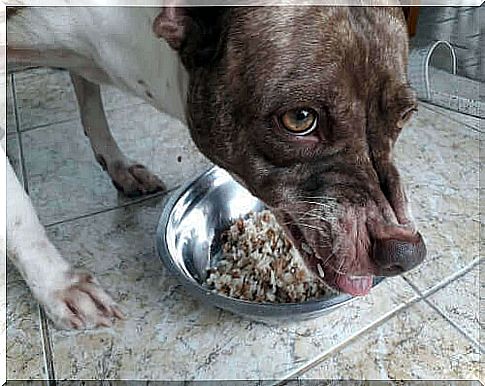
Is It Possible To Control Diet-Related Aggression In Dogs?
The first step is that you evaluate your dog’s overall behavior. Is he only possessive about his food, or does this extend to his favorite toys, his sleeping place, and perhaps other members of the household as well?
If this behavior isn’t just limited to food, then you know that your dog is fundamentally protecting its resources. It is very important that you understand your dog’s situation and motivations.
Assess your dog’s confidence and general behavior
If your dog is naturally dominant, then you should make sure he accepts you as the “pack leader”. This needs to be done in a calm and determined manner. And if your dog is shy or scared, you should build his confidence. It is also important that you teach him that his food is safe in the presence of people.
It is also important to assess whether the diet-related aggression is mild, moderate, or severe. If the aggression is severe, you should see a professional to discuss what action to take.
Simple techniques for changing aggressive behavior in dogs
Always feed your dog at the same time. Some dogs develop diet-related aggression because they don’t know when to get their next meal. If this is the case with your dog, then you will provide him with a lot of relief by having fixed feeding times. Make sure you stick to it every day.
Dogs have an excellent internal clock. Therefore, it is quite easy for them to know when it is time to get up or go for a walk, when to come home, etc. That is why feeding on time will help your pet overcome their fears.
